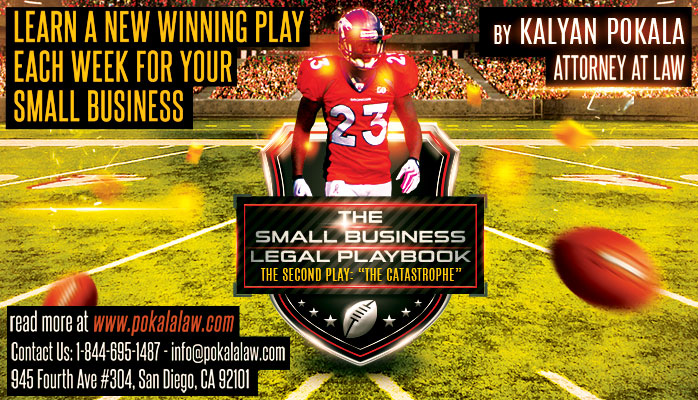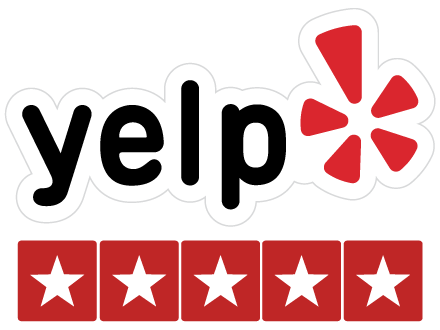Picture this: you and your business partner(s) are celebrating another successful year for your company. Things are going wonderfully, but something is nagging you. You feel like you and your partners aren’t in control of your collective destiny, and that you cannot prepare for a catastrophic event, only react to it when it happens. With all things in life, we have to come to terms with the fact that not everything is in our control, even in a business that you own by yourself or with your wife/husband/brother/parent.
There’s nothing that can prevent a catastrophic event from happening. If it happens, it happens. But what you can do is be prepared for it, and to develop a strategy and have it in place so that you and your small business can weather whatever storm comes your way.
This play involves only offensive strategies, because this play is all about what you can do to be proactive. Here are the offensive strategies, but first a quick recap from Play #1. An offensive strategy is proactive while a defensive strategy is reactive. Just like in football, once a play is called, the defense reacts to the offense’s formation, personnel, and the situation, and acts accordingly.
To make an analogy between football and business, a good team prepares for potential injuries and even if they have a future Hall of Famer at quarterback, their management team finds a quality back-up in case their star gets hurt. That’s an offensive strategy, preparing for the worst, no matter how unlikely it is. A defensive strategy would be when the team’s QB goes down, and the team figures out what to do now that there is a problem they must deal with.
So what can you do to prepare for a catastrophe, as a small business owner?
Insurance. Insurance is the number one difference-maker, for so many of the issues that a small business might face. Several types of insurance are important, each for different reasons.
Property Insurance is important because you need to protect your business in case there’s a fire, flood or earthquake. A good insurance policy might seem expensive but trust me, they’re worth every penny. You want to make sure that the policy covers any and all of the things that could possibly happen to the property where your business is located, including your inventory, machinery, etc.
One insurance that most small business owners don’t think about is Life Insurance. Most people think life insurance policies are only to protect your loved ones. But they can also protect your business from going under, and when combined with a well written Buy-Sell Agreement (the subject of an upcoming Play), it can protect your share of the business and make sure your heirs, your business partners, and your business itself, can all be protected from a tragedy.
How does this work? It’s fairly straight-forward. You and your business partners sit down, and come up with a Buy-Sell Agreement that works for everyone. A Buy-Sell Agreement basically explains how each partner can buy or sell interest in the company. The question is, how do you fund it? Most business owners are consistently putting their money back into their business to make it succeed, they don’t have the disposable income to buy out their business partners and keep the business afloat. So pretend your business partner passes away, and he leaves behind a wife and kids. As his heirs, they are entitled to your business partner’s share of the business. But what if you can’t afford to buy your partner’s share of the company, or your partner’s widow wants to sell it for more money to a third party, or if you don’t get along with your partner’s widow? There’s a solution, the Buy-Sell Agreement will force your partner’s widow to sell their husband or wife’s share of the business to the remaining partners, and you use Life Insurance policies to fund the purchase. The company pays for a Key Man Life Insurance Policy, and the partners make sure to update the policy limits on each other on at least an annual basis to reflect the changing value of the business.
Liability Insurance is also key, to protect your business if someone slips and falls on your property.
The final type of insurance you need for your small business, especially if you have employees, is EPLI insurance, which is employment practice liability insurance. These policies can provide you with an attorney, at no additional cost to you, to represent you if an employee is claiming that they were discriminated against, wrongfully terminated, harassed and other employment-related issues.
A good insurance broker will be able to tell you what policies you need. Be sure to ask them directly what kind of things the policies cover and what the policies don’t cover. Get those thoughts in writing.
Where are the defensive strategies, you might ask? What can you do if you haven’t prepared and you can only react? Stay calm, talk to your financial advisors, business mentors, insurance agent, CPA and maybe your attorney, each of whom can offer suggestions based on their experiences to help you deal with the problem at hand. Don’t rush to judgments.
See you next week, until then, may your businesses continue to thrive and your football teams be victorious!



